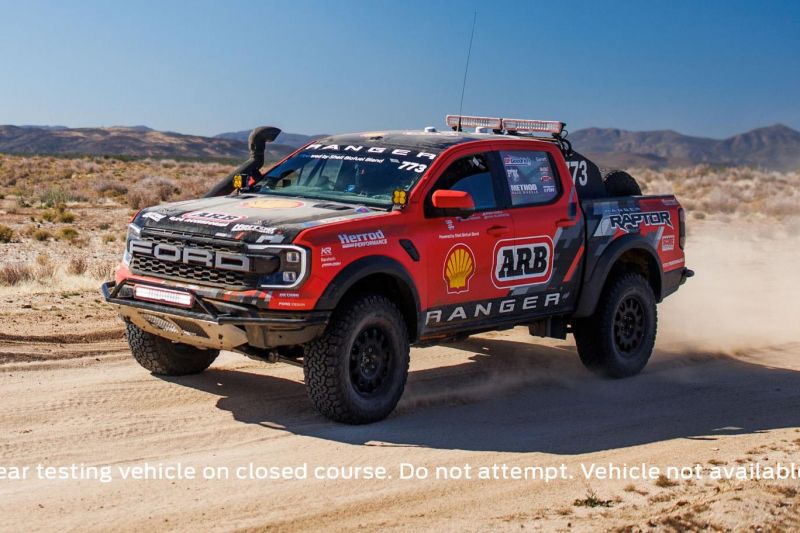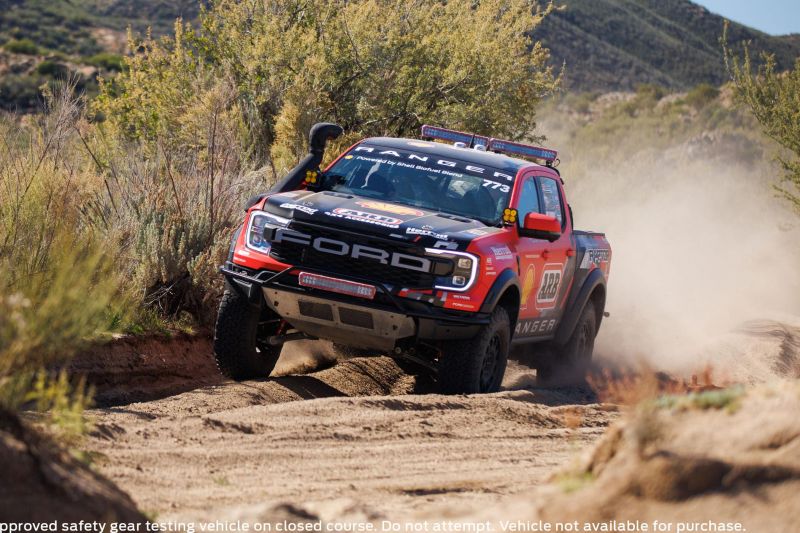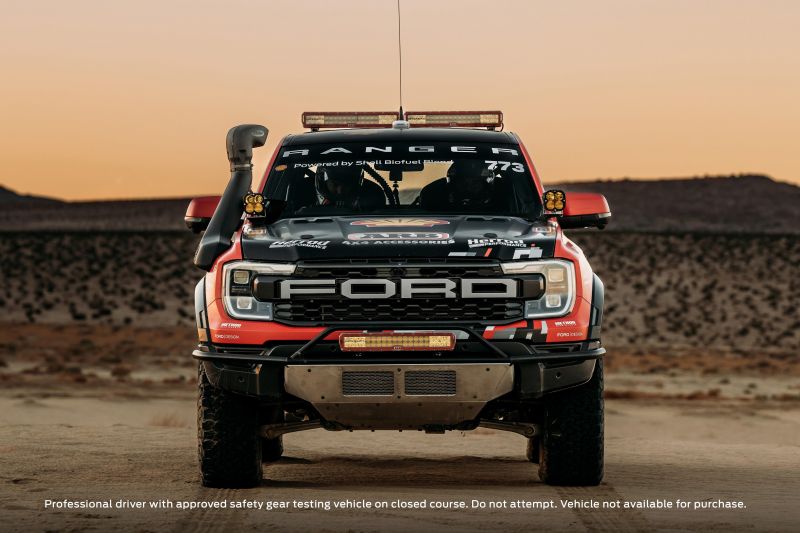Having taken on the Baja 1000, a near-stock Ford Ranger Raptor will this weekend test its mettle at the Finke Desert Race in the Northern Territory.
The Raptor will be piloted by American father and son team Brad and Byam Lovell, who were also part of the team that drove the same car to victory at the Baja 1000.
“This compared to Baja, there’s less hazards here so you can push hard,” said race driver Brad Lovell, who said he’ll run the car predominantly in four-wheel drive.
“Here the speeds are higher because the terrain… is more consistent. It’s an endurance race, but it’s certainly more of a sprint race than the Baja 1000.”
The race itself will take place over June 11-12 and consists of two sections, each approximately 226km in length.
Unlike the Baja 1000, where the ute had no competition within its category, there’s a handful of other vehicles in its class at Finke.
Although it’s competing in the Production Class and has an unchanged powertrain, the racing Raptor has a few key differences to the Rangers available to the public.
Along with the requisite motorsports and safety kit inside, the Finke racer features proper off-road wheels and tyres, extra lighting (but less than it had for Baja), plastic rear windows, tougher underbody protection and bash plates, and a 160-litre fuel cell in the tray.
“We’re playing around with the sport mode setting on it, so when you put the shocks into sport mode, it locks the dampers out in full extension,” said Ford Performance and Special Vehicle Programs manager Justin Capicchiano.
“So when you’re recovering out, it doesn’t roll up onto the wheel as much, it basically just holds them down, forces the tyres into the ground,” he added, though he ruled out plans to put this kind of recovery mode in a production Raptor.
Other changes since the ute tackled the Baja 1000 include different tow straps and changes to the fuel filter. It also is running with a tailgate here, which it didn’t in Mexico.
At launch, Ford said the frame in the Raptor had been so heavily reinforced relative to the regular car (and its predecessor) it was almost a unique platform.
Besides owners pushing hard on back roads, and the occasional punter keen to jump their car, clearly some of that reinforcement was aimed at readying the Raptor for the desert.
Under the skin, the road car’s suspension comprises aluminium upper and lower control arms, long-travel front and rear springs, and a refined Watt’s linkage equipped with coils at the rear.
There are also 2.5-inch Fox Live Valve position-sensitive dampers linked to the drive modes. These shocks – billed as the “most sophisticated ever on Ranger Raptor” – are filled with Teflon-infused oil to cut friction by a claimed 50 per cent.
They offer maximum damping force in the last 25 per cent of shock travel to protect against severe bottom outs, such as on landing. Ford adds the system can also stiffen the rear dampers to prevent the Raptor from squatting under hard acceleration.
Power in the road-going Raptor comes from a 3.0-litre twin-turbocharged V6 making 292kW of power and 583Nm of torque, sent to all four wheels through a full-time four-wheel drive system.
The car will be serviced and managed by Walkinshaw Performance, which Ford says is a sister to the Walkinshaw Andretti United Supercars team that recently switched from Holden Commodores to Mustangs.
As for what happens to this particular vehicle after it completes the Finke, Ford says the end game is for it to become a museum piece.
“Whatever we do with it after this, it’s never going to get crushed,” said Mr Capicchiano.
MORE: Everything Ford Ranger



